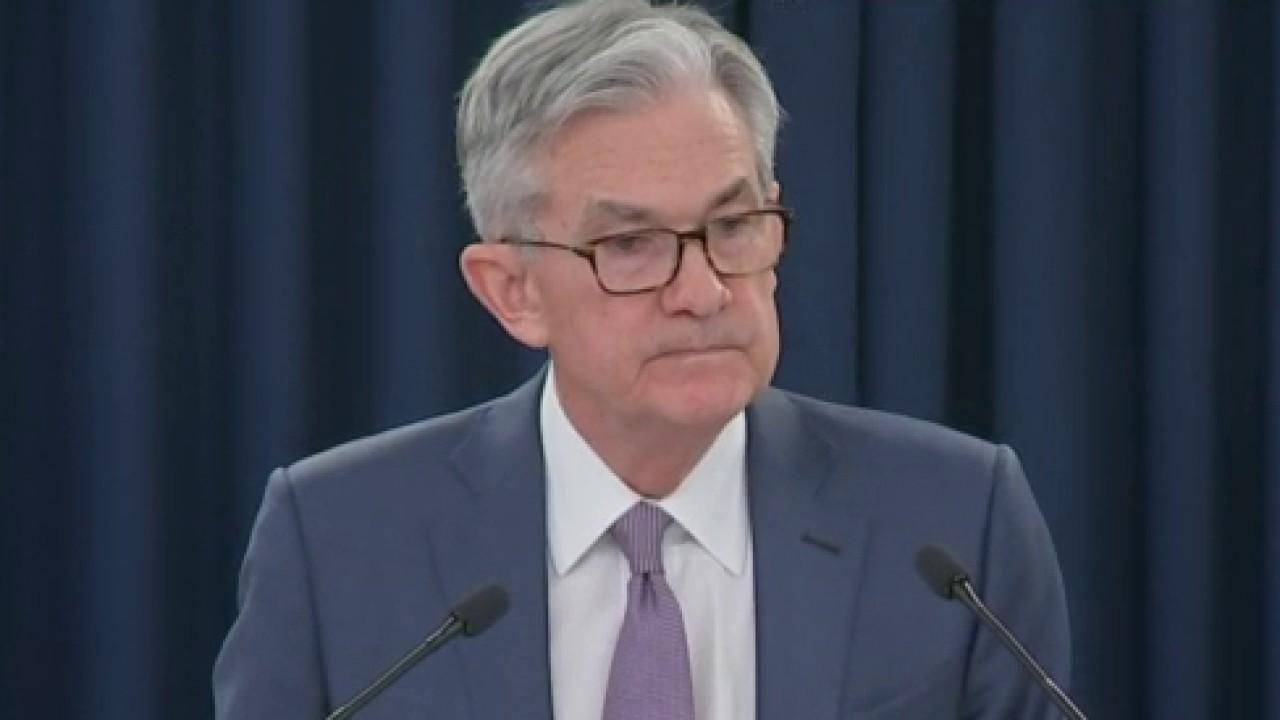Fed’s Powell opens door to another rate cut to offset coronavirus fallout
About 51.4% of traders expect an additional 25-basis-point cut during policymakers’ April 28-29 meeting
The Federal Reserve, in a rare emergency move on Tuesday, sharply cut interest rates to offset economic fallout from the wide-spreading coronavirus — and left the door open for another potential decrease later this year.
The U.S. central bank said it lowered its key benchmark federal funds rate by 50 basis points to a range of 1 percent to 1.25 percent. It was the first time since late 2008, shortly after the collapse of Lehman Brothers, that policymakers made an emergency cut between scheduled meetings.
“We saw a risk to the outlook of the economy and we chose to act,” Fed Chair Jerome Powell said at a 13-minute press conference after the announcement, during which he continued to project confidence about the state of the U.S. economy. Policymakers voted unanimously to make the cut.
Given the uncertainty of potential ramifications from the virus — it causes a disease called COVID-19, and has killed more than 3,000 people, with close to 90,000 cases reported worldwide — Wall Street is continuing to price in additional monetary action by the Fed. So far, there have been a total of 80 confirmed cases of coronavirus in the U.S. and nine deaths.
According to the CME’s FedWatch Tool, about 51.4 percent of traders expect an additional 25-basis-point cut during policymakers’ April 28-29 meeting. Prior to the Fed’s announcement, markets had indicated a 100 percent chance of a 50-basis-point cut at the central bank’s meeting from March 17-18.
EL-ERIAN, BRENNER, MINERD SAY FED CAN AND SHOULD DO MORE
“The Fed's decision to cut its rate target by 50 bps is not surprising: for some days markets have been expecting a deeper cut than that; consequently had the Fed not announced a cut the decision would have amounted to disappointing news, which would have fueled further panic,” Cato Institute senior fellow George Selgin said.
He continued: “What matters most isn't what the Fed has done today, but what actions it signals for the future. A strong commitment by Fed officials to do whatever is needed to accommodate dollar demand, and thereby prevent any persistent decline in overall spending, will ultimately help allay panic more than any single rate cut can.”
FED MAKES EMERGENCY RATE CUT TO COMBAT CORONAVIRUS FALLOUT
Powell acknowledged the rate cut would not fix a broken supply chain in China, which has so far borne the brunt of the outbreak, but said it could help insulate the economy from potential slowdown. While he said the situation remains fluid, Powell did not rule out the possibility for further action.
“We don’t think we have all the answers, but we do believe our action will provide meaningful support to the economy," Powell said. “It will support accommodative conditions and avoid a tightening of financial conditions, and it will help boost household and business confidence.”
The interbank lending rate can affect consumers by increasing borrowing costs. That includes things like auto loans and credit cards; even a slightly lower rate for both can mean thousands of dollars in savings for consumers.
GET FOX BUSINESS ON THE GO BY CLICKING HERE




















